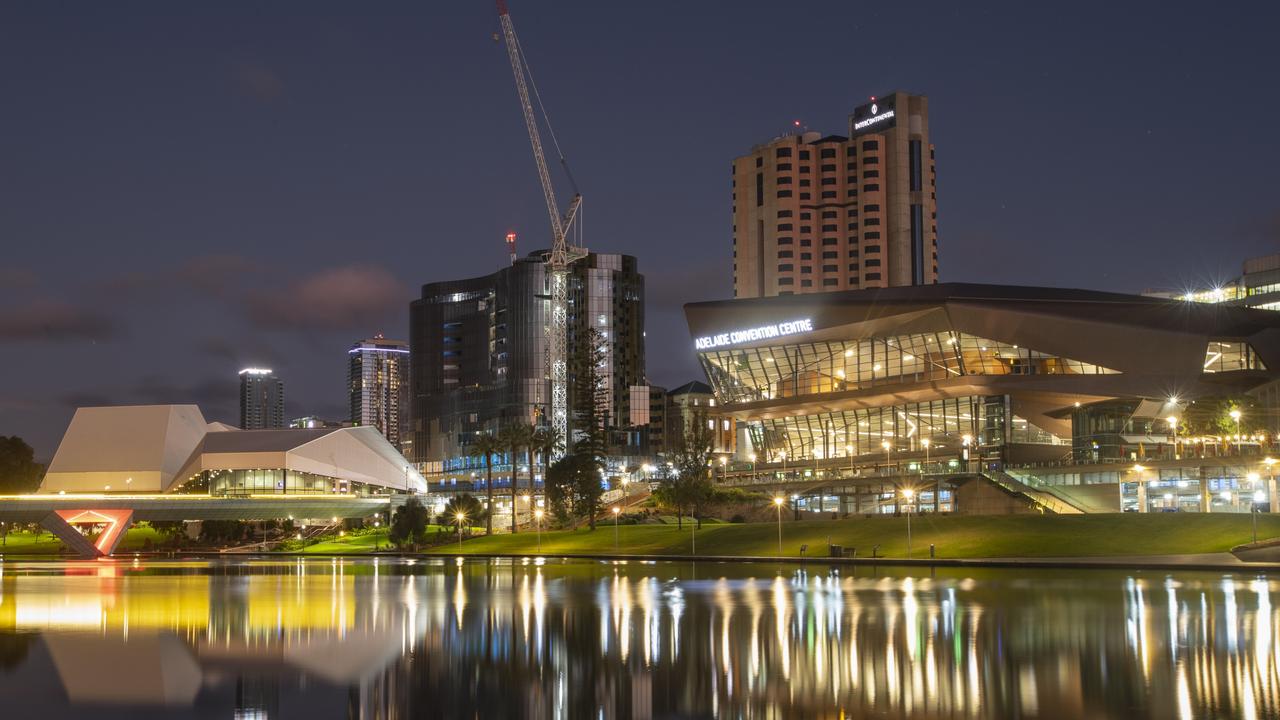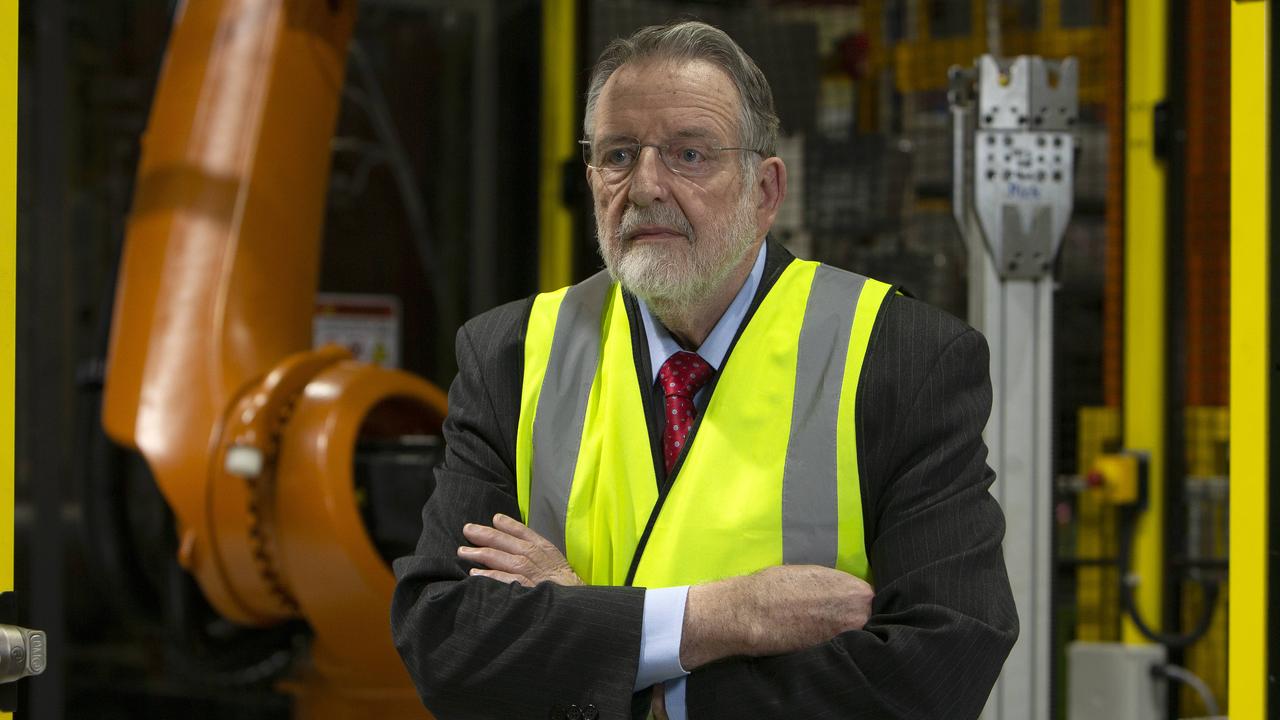Meet the future at Hybrid World ADL, a technology and innovation conference to be held in Adelaide later this year
US innovation strategist and author Robert Tercek will bring the future to Adelaide at the inaugural Hybrid World ADL festival and industry conference

SA Business
Don't miss out on the headlines from SA Business. Followed categories will be added to My News.
So when is the future and how do we think and plan meaningfully about where the digital economy is taking us? Most people can speak pretty confidently about life in two, three even five years, says US innovation strategist, Robert Tercek who is the curator of the Hybrid World ADL conference to be held at Tonsley Precinct in October.
Beyond that, he falls back on the industry prediction first made by computer scientist Alan Kay — that the best way to predict the future is to invent it.
Tercek’s purpose in curating the mini festival that will bring together global leaders in biotechnology, space engineering and brain-computer interfaces is to bring to Adelaide, people who are inventing the future now.
“They are doing it in many different ways and in different businesses,” he says from the US. “But every single person who is coming to Hybrid World as a speaker, as a mentor, has had hands-on experience inventing the world of the future.”
While Hybrid World ADL will be a family event, with interactive zombie games, YouTube master classes and drone racing, the State Government hopes to encourage industry — from agriculture to biotech, robotics, engineering and space — to capitalise on what is happening around them. Tercek is something of a futurist himself, a prolific creator of interactive content across TV, telecommunications and software; and the author of Vaporized; Solid Strategies for Success in a Dematerialised World. His job was to find the coolest people on the planet working at the cutting edge of innovation and technology, and bring them here.
“This is important for Adelaide because Adelaide is on the brink of reinventing itself,” he says. “These people are doers, not just speakers, and very often the things they are working on might be a little bit over the horizon.”
The discussion leaders will include Andrew Hessel, a US biology software expert who calls himself a biohacker. He is at the forefront of game-changing software that is transitioning science, including genetics, away from the laboratory and onto a computer. As a distinguished researcher with Autodesk Inc, where he is part of its San Francisco based life-science group, he creates software for molecular and living systems.
Tercek admits it seems a contradiction. How can lab-based biology, essentially a wet science, be done on a computer? The answer is that biology, like most disciplines, has evolved into an information science and biology experiments can be designed and modelled.
“I know that sounds crazy, it might even sound God-like,” Tercek says. “Sometimes people say ‘hang on, that’s not a job for humanity, that’s a job for God, to design new organisms. But that’s what is happening now in the field of synthetic biology.”
While there are thousands of companies in the field, Hessel specialises in 3D software that allows the modelling of new life forms. New DNA strands are designed in the same way as coders write software, but with a four-letter alphabet of a, c, g and t rather than the computer’s 0, 1 binary code.
“So you compose it, and then — believe it or not — you click and print,” he says.
A new DNA strand is then synthesised in a lab and inserted into a single-cell organism, like a bacteria or an algae and the new life form is tested to see if it behaves the way the maker intended. If not, it is destroyed to make sure nothing unpredictable escapes from the lab.
“That is always the scary scenario,” says Tercek. “Although it’s a bit overblown because that’s not what this is about. It’s not about building some kind of new superbug, scary science-fiction scenario.”
Tercek says that Hessel, one of five keynote speakers announced so far, was the first person he called because his work sits so far out on the cusp of what is possible. Hessel co-founded Humane Genomics which is developing virus based therapies for cancer, starting with dogs, and first proposed synthesising the human genome back in 2012.
Leading discussion about artificial intelligence will be Dr Phillip Alvelda who worked with the US military innovator, DARPA (Defence Advanced Research Projects Agency) where he developed national programs to create next-generation interfaces that connect electronics to neurons. Tercek says to understand this is to answer the question, “What comes after the smartphone?”
“When people ask me that I tell them the next phone won’t be a phone at all, it will be a jack that you plug right into your brain,” he says. “That’s what Phillip worked on at DARPA. It might sound a little bit audacious and little bit out there and over the horizon, and it is.”
The work at DARPA driven by the horrific injuries US soldiers were coming home with includes commanding a fake limb by using the mind. (Doubters should watch a YouTube video of quadriplegic woman Jan Scheuermann feeding herself chocolate with a prosthetic arm under her mind control). DARPA does not keep the technologies it invents, including the smartphone, and Alvelda has left and now works on commercialising their ideas.
“Talking to him, my mind is blown,” says Tercek. “You are telling me I can be sitting here talking to someone somewhere else in the world and say ‘hey, Penny, check this out’ and you will actually see something that I am seeing now, through your own eyes? He said ‘yes, of course that is going to happen, in probably four to ten years’.”
Other less futuristic but equally transformative technologies will be featured, including blockchain software that Sydney-based AgriDigital CEO Emma Weston successfully pioneered last December to complete the first ever blockchain settlement between a farmer and a buyer. The technology, which is a byproduct of the creation of the digital currency Bitcoin, is effectively a decentralised ledger that secures transactions so one system can enable the delivery of a product, and its payment. Its applications are immediate, and the agriculture industry is the first to embrace it.
“Agriculture is important not just to Australia and South Australia but for me it’s interesting because if you’re not in the agricultural business you tend to think of it as old school when it’s not,” Tercek says. “The reality is, farmers are the first to adopt technology if it’s going to be useful and practical.”
Hybrid World ADL at Tonsley Innovation Precinct, October 4-8
hybridworldadelaide.org


